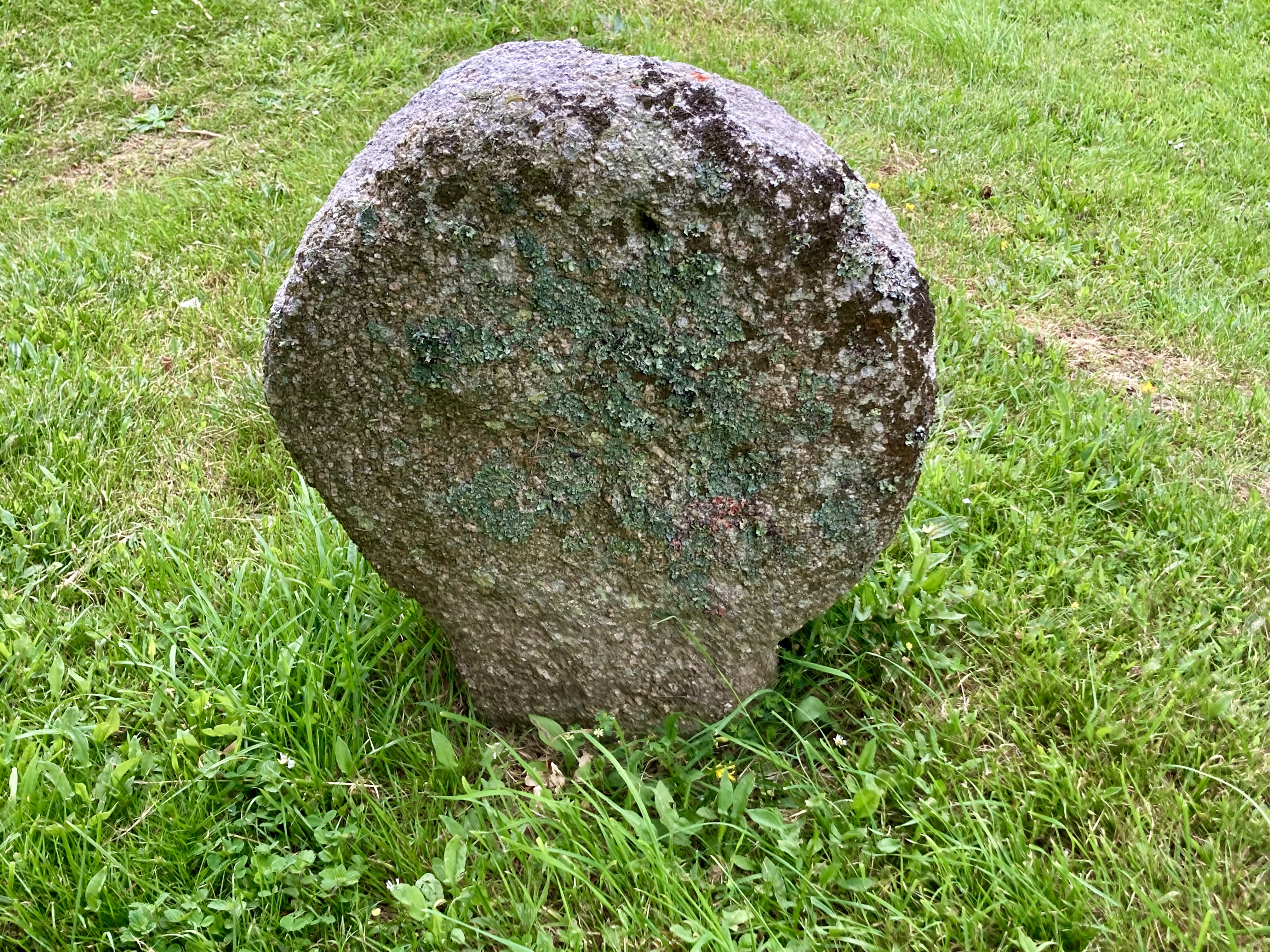
Constantine, The Lizard, Cornwall
Constantine Church, Constantine Village
The church was being cleaned, so after briefly popping in we decided to sit in the churchyard where it was quiet, and pray. We moved away from the main entrance path as I was aware of a masonic influence. So we sat on the wall in the churchyard and prayed. It was amazing looking at the church, seeing the raised circular mound it sits on and thinking this has been here for many centuries. It is recorded as being the remains of the original Celtic monastery of Langostentyn, the old name for Constantine. There is the head of an ancient Celtic cross buried in the churchyard. It's thought the pillar shaft is still intact buried under the raised soil level of the ground.

In all honesty, I wasn't particularly expectant but was praying blessing on the church when suddenly I am in a vision.
I see a smallish round pit, about 3' across, full of burning fire. It sits within the original 'lan'. The flame is steady rather than fierce. Three angels stand around the pit with their backs to it, looking outwards.
I hear the words, 'Come all who are thirsty and you will be satisfied.' I watch as people come towards the firepit and the angels turn towards the fire, reach in and offer the fire to the person who has approached. However, as the angel turns back to the person a transformation takes place and the fire is now water in a small golden bowl. I hear, 'Drink and be satisfied.'
Then I hear the Lord's instruction, 'Pray for this fire to be released' and with that we prayed that simple prayer in faith.
Little is known about Constantine except that he was one of the few Celtic saints who was a Cornishman. Most people agree he was a person of authority, a prince, chief or king living around the 5th century AD. There was a king of Dumnonia (Devon and Cornwall) called Constantine living around the 6th century or earlier. One legend mentions a Constantine being a nephew of King Arthur and the one he bequeathed his crown to when mortally wounded. In Wales, Ireland and Scotland Constantine is remembered as a king, monk and martyr. Exact details are lost in the mists of time and hagiography.